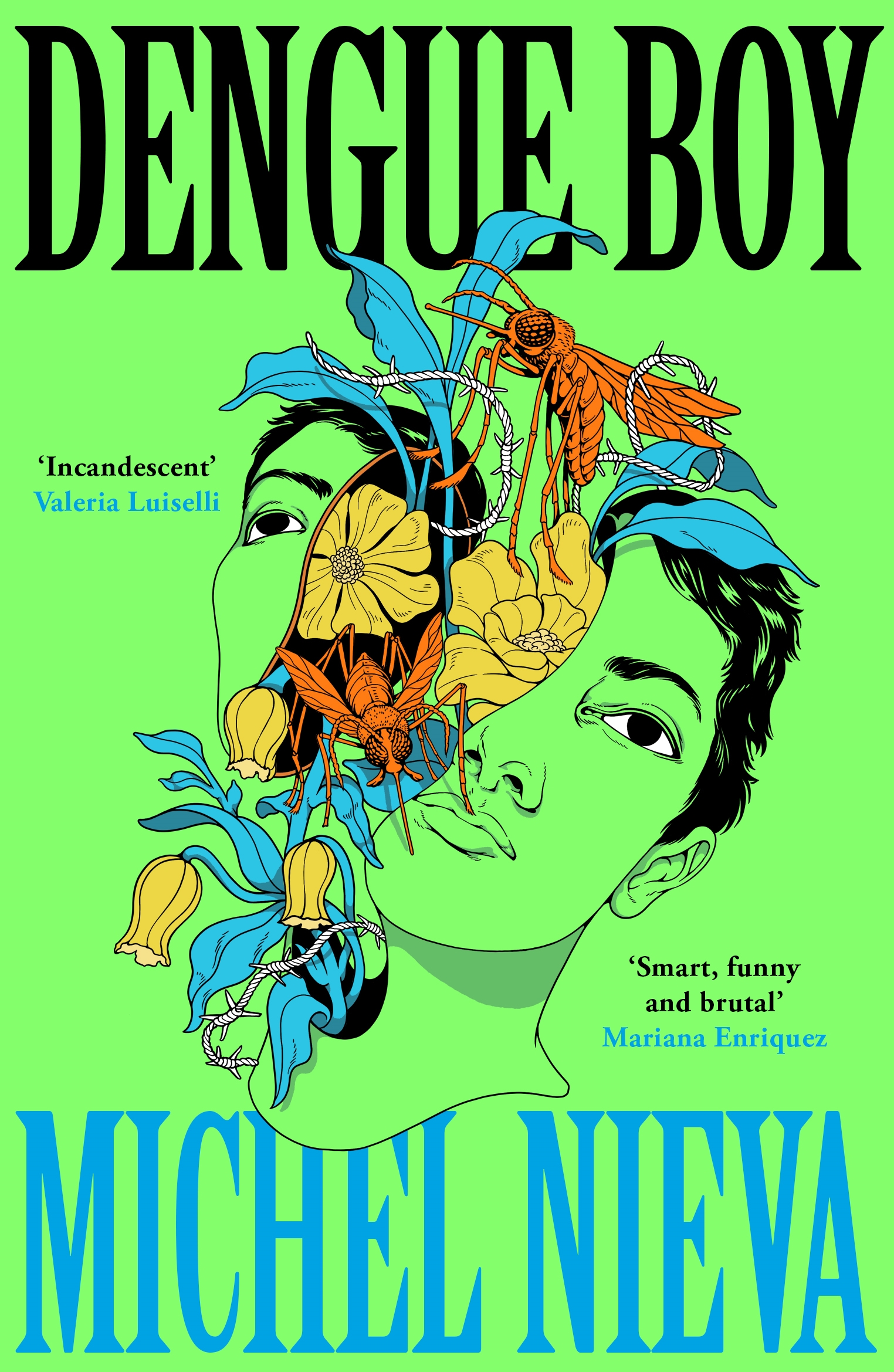
Dengue Boy
by RAHUL BERY, MICHEL NIEVA
In a climate-ravaged 2272 where most of Earth is underwater and capitalism thrives on pandemic speculation, a bullied mosquito-human hybrid searches for identity and meaning amid body horror, virtual reality violence, and social decay. Blending absurdist satire and cyberpunk, the novel explores themes of environmental collapse, exploitation, and the persistence of inequality through a surreal, grotesque coming-of-age journey.
Reader Review Summary
Set in the year 2272, the novel imagines a future Earth devastated by climate change, where the polar ice caps have melted, most of the planet is underwater, and only the Patagonian archipelagos and parts of Antarctic Argentina remain habitable. The protagonist, Dengue Boy, is a humanoid mosquito who faces social rejection and bullying, even from his own mother, and embarks on a quest to discover his origins and the meaning of his existence. The world is characterized by extreme temperatures (with some regions reaching up to 200°C), a stark divide between rich and poor, and a society where pandemics are commodified through 'virofinance'—the trading of viruses and cures on the stock market. The narrative incorporates elements of body horror, cyberpunk, and absurdist satire, with additional threads involving virtual reality games that reenact historical violence, time travel, and meta-narrative devices. The book is described as blending influences from authors such as Kafka, Cronenberg, Ballard, Dick, and Borges, and is noted for its experimental structure, shifting perspectives, and a tone that oscillates between humor, grotesque imagery, and social critique.
Readers appreciated the book's imaginative world-building, particularly its detailed depiction of a climate-ravaged future and the integration of speculative concepts like virofinance and virtual reality games that reflect on colonialism and violence. The satirical and absurdist tone, as well as the use of body horror and dark humor, were frequently highlighted as strengths, with some reviewers noting the effective use of multiple narrators and the blending of genres such as science fiction, horror, and literary fiction. The narrative's willingness to tackle themes like capitalism, environmental destruction, gender, and identity through unconventional storytelling approaches was also praised. Several readers found the book's pacing fast and engaging, and some enjoyed the meta-literary elements and the way the story's structure became clearer upon completion.
Criticisms centered on the book's execution and style, with some readers finding the narrative chaotic, disjointed, or overly experimental, leading to confusion or frustration. The writing was described by some as simplistic, clunky, or excessively adorned with adjectives and parenthetical asides, and the humor did not resonate with all readers. Several reviewers felt that the characters, including Dengue Boy and his antagonist Dulce, lacked depth or development, and that the plot lost focus after a strong beginning, with side plots and narrative threads (such as the telepathic stones or the 'Gran Anarca') left underdeveloped or unresolved. Some found the book's reliance on vulgarity, gore, and sexual content gratuitous, and others felt that the social critique remained superficial or was overshadowed by stylistic flourishes. The brevity of the novel and the rapid pacing were also cited as factors that limited the exploration of its many ideas.
The book has received a mixed reception, with an average rating of 3.57 out of 5 from over 1,600 ratings and nearly 500 full reviews. It has been published in multiple languages and has drawn comparisons to a range of authors and genres, including cyberpunk, new weird, and Latin American literary traditions. The narrative incorporates Argentine and broader Hispanic cultural references, and its experimental approach has sparked both enthusiasm and disappointment among readers. The book is often described as short, intense, and polarizing, with a clear sense of its own aims and a style that appeals to a specific audience interested in speculative fiction that challenges conventional narrative forms.
Copyright ©2024 Hidden Sci-Fi






